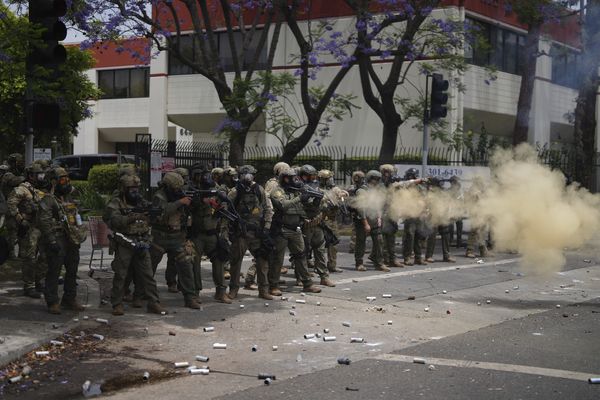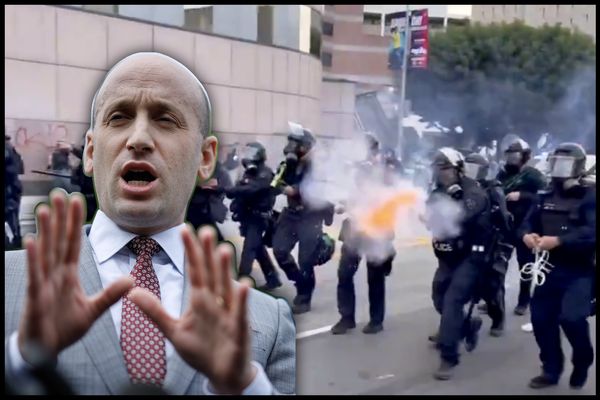
At the Hay festival more than a decade ago, I struggled to escape the rain by squeezing into the back of a huge marquee. The tent was packed with damp literature lovers and full of love. The recipient of that love – wearing an orange boiler suit and the biggest smile on the planet, flashing his dreadlocks and letting fly with martial arts kicks – was the Rasta poet Benjamin Zephaniah.
Alongside a few other contemporary figures, such as Grayson Perry, Zephaniah has found the key to unlocking the nation’s affections for an artist. This was far from predetermined. In The Life and Rhymes, a raw yet warm account in 61 brief chapters of the existential need for black self-actualisation, Zephaniah offers himself up as a fascinating case study. The Birmingham-born son of Caribbean immigrants, whose formal education finished at 15, reveals how he managed to confound British society’s low expectations of him.
Zephaniah was the kind of boy the politician and teacher Bernard Coard had in mind when, in 1971, he wrote the pamphlet How the West Indian Child Is Made Educationally Subnormal in the British School System, an exploration of the “cultural bias” that sets up black boys to fail. But from feral, knife-carrying youth, Zephaniah underwent a remarkable transformation that would eventually propel him from custody in borstal to chair of creative writing at Brunel University, with a string of honorary degrees.

How he managed this is the primary subject of his autobiography. Early on, Zephaniah describes a Boys’ Brigade master (a “moustache attached to a uniform”) who attempted to squash his ambition to write poems in its infancy. The moustache asked: “When was the last time you saw a poet skin a rabbit?” Church proved more nurturing. One day, he stood up in the pews and with a Bible-rapping beat recited backwards and forwards the names of the books of the Old Testament, eliciting “Hallelujahs” and “Praise the Lords” from the spellbound congregation, who immediately named him the Prophet Zephaniah.
The little prophet, though, was troubled by a wife-beating father whom he once unsuccessfully tried to stab with a penknife when his mother was under attack. Mother and son moved out of the family home. Peculiarly, the pastor who became Zephaniah’s stepfather did little to curb his growing penchant for petty crime: he demanded a share of the bounty. In writing about burglary, pickpocketing and robbery, Zephaniah just about manages to tread the treacherous path between celebrating his adolescent dexterity for relieving people of their wallets and critiquing crimes and misdemeanours that might otherwise undermine the conscientious advocate for the dispossessed he would eventually become.
He did not dodge an appointment with HM Prison Service, prompting for him the nagging thought that this would always be his destiny. Further interrogation of this all too regular pipeline for black boys – from school to prison – is edged out in favour of amusing anecdotes – such as his relationship with a warden who shared his passion for martial arts and challenged him to night-time sparring sessions in his office.
To his credit, Zephaniah doesn’t solicit sympathy for his misguided, delinquent youth. In a recent BBC interview, he volunteered that as a 15-year-old he once hit a girlfriend; many years later she was bewildered that Zephaniah thought it necessary to beg her forgiveness. With regards to his association with violent gangs, he asks only that we appreciate the pressure to comply with the juvenile judgment of peers trapped in a picaroon world of “do unto others before they do it to you”.
When his gang descended into a spiral of revenge killings, the fledgling poet concluded he had to get out of town before “me a-go kill man, or man a-go kill me”. Zephaniah lists among his greatest achievements that he reached 30 “without being shot”.
In London, he rode his luck, hanging out on the fringes of reggae, ska and punk gigs. After badgering bands to let him warm up the crowd, he emerged as a performance poet (patronised by radical bookshops) at the beginning of the 1980s. His burgeoning career was further boosted by an innovative Channel 4 hungry for radical alternative content.
In protest poetry, aesthetics took a back seat to agitation and propaganda. Poems such as “Dis Policeman Keeps on Kicking Me to Death” had a directness and integrity whose truth was irresistible. Zephaniah’s good intentions have always made an impact, and he did his reputation no harm by his very public rejection in 2003 of an OBE.
While it eschews literary inventiveness, The Life and Rhymes has a performative quality reminiscent of Zephaniah’s poetry – honest, unshowy and ultimately unthreatening. It matches the man. He often gave the appearance of being a revolutionary, but as with soldiers parading with rifles whose firing pins have been removed, no one was really frightened.
Fifty years on from Coard’s analysis of the difficulties of escaping the cliched predeterminism of black youths’ lives, Zephaniah confirms that art can serve as an instrument for change. The people’s poet has written himself out of the life that was mapped for him.
• The Life and Rhymes of Benjamin Zephaniah: The Autobiography is published by Scribner. To order a copy for £13.99 (RRP £20) go to guardianbookshop.com or call 0330 333 6846. Free UK p&p over £10, online orders only. Phone orders min p&p of £1.99.







